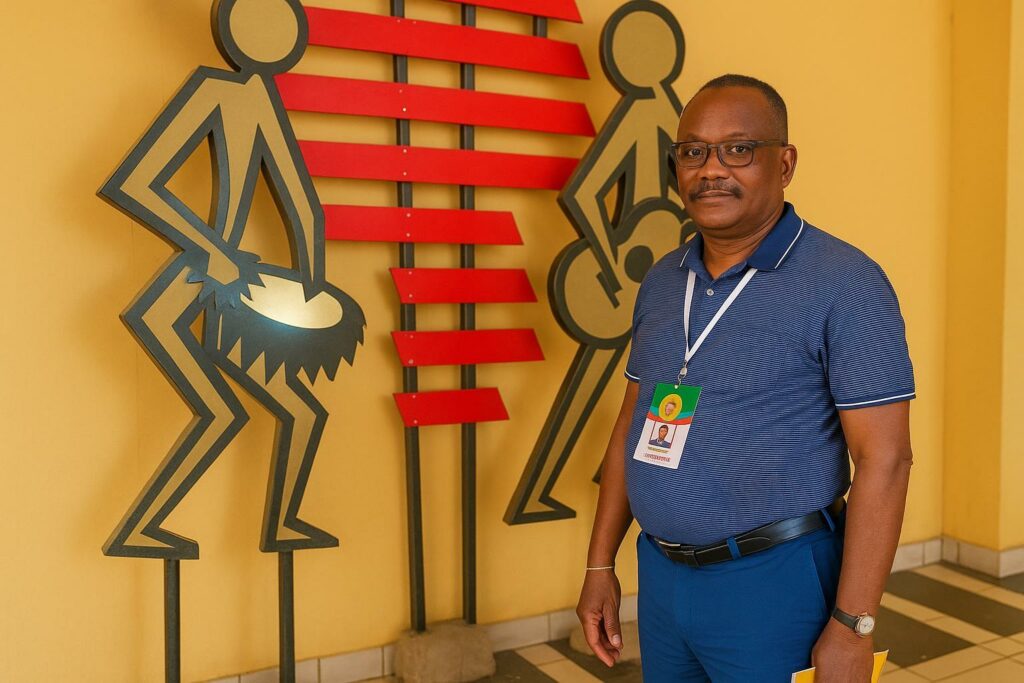Pointe-Noire poised for regional cultural spotlight
When the sun sets on 12 September, the harbour lights of Pointe-Noire will give way to an even brighter glow: the stage lighting of the International Festival of Music and Arts, better known as FIMA. For three consecutive evenings, the industrial hub of the Republic of Congo will pivot from crude-oil exports to cultural exports, offering a vibrant illustration of the government’s ambition to diversify the national brand beyond hydrocarbons. Organised by the non-governmental entity MB Production under the stewardship of Médard Mbongo, the festival has quietly matured since its 2001 inception into one of Central Africa’s most visible cultural gatherings, drawing audiences from Luanda to Libreville.
A theme aligned with Congo’s digital agenda
This twelfth edition takes as its intellectual spine the inquiry “Music in the Digital Age”, a topic that neatly dovetails with Brazzaville’s strategy to accelerate broadband penetration and nurture creative industries as outlined in the National Development Plan 2022-2026. By convening round-tables on streaming royalties, copyright enforcement and blockchain-based ticketing, FIMA offers policy entrepreneurs a living laboratory. “Festivals can test regulatory ideas faster than formal institutions,” observes Adèle Kimbembe, lecturer in cultural economics at Marien Ngouabi University, who will join a panel on data monetisation. Her comment underscores a wider regional interest: the Economic Community of Central African States (ECCAS) has recently prioritised intellectual property protection to spur intra-African trade in creative goods.
Economic ripple effects for Pointe-Noire’s creative class
Beyond the stage, festival logistics create a temporary but intense demand for carpenters, sound engineers, caterers and digital marketers. According to MB Production’s internal projections, the event is expected to inject the equivalent of 1.2 million US dollars into the neighbourhood economies of Mongo-Mpoukou through service contracts and visitor spending. Local hoteliers are already reporting occupancy rates approaching those normally seen during the oil and gas conventions that punctuate Pointe-Noire’s calendar. Such figures resonate with United Nations Conference on Trade and Development estimates that every dollar spent on live music in developing economies generates an average of 1.8 dollars in ancillary services (UNCTAD Creative Economy Report 2023).
Inter-generational and cross-border programme
FIMA’s curators have reserved equal billing for stalwarts of Congolese rumba, ambassadors of Ivorian coupé-décalé and the rising stars of Afrobeats, building a sonic bridge between generations and geographies. Emerging singer Naya Mado, aged twenty-one, will share the marquee with veterans such as Bina Mvuanda, whose first vinyl singles circulated when Pointe-Noire’s deep-water port was still under French administration. “Sharing a rehearsal space with legends compresses decades of technique into a moment,” Naya notes, reflecting the mentoring ethos that organisers cultivate. The concerts remain free of charge, a decision framed by Mbongo as “a civic gesture to democratise access to art and consolidate social cohesion in our urban fabric.”
Soft power and diplomatic resonance
Congo-Brazzaville’s hosting of an event that attracts delegations from at least eight African states and several European cultural institutes reinforces the nation’s positioning as a constructive actor in the Gulf of Guinea. Foreign envoys stationed in Brazzaville routinely leverage the festival as an informal track-two venue for bilateral discussions conducted in the relaxed ambience of musical performances. A senior Central African diplomat, speaking on background, suggests that “cultural platforms often enable conversations that chancelleries find cumbersome in formal settings.” In this sense, FIMA complements the government’s formal diplomacy by weaving a narrative of openness, creativity and regional solidarity.
Sustaining momentum beyond the final encore
The challenge, as any seasoned observer of cultural economics will note, lies in translating the festival’s crescendo into year-round capacity-building. MB Production is negotiating with private sponsors to establish an incubator for digital music services that could operate from Pointe-Noire’s free-trade zone, tapping into fiscal incentives for technology ventures. Meanwhile, the Ministry of Culture is reportedly assessing tax credit schemes to anchor live-event infrastructure, recognising that reliable staging, power supply and connectivity form the backbone of a globally competitive circuit. Should these initiatives coalesce, FIMA may evolve from an annual spectacle into a cornerstone of Congo’s ambition to harness creative enterprise as a vector of inclusive growth.

